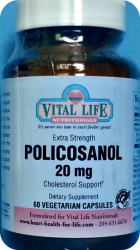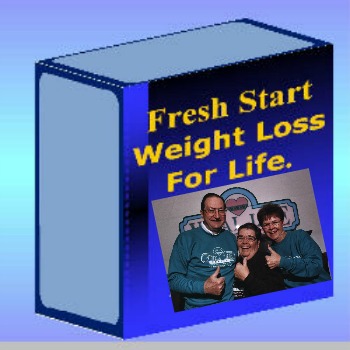The Cholesterol Myth Has Been Exposed.
Gene Millen, Author - Revised 5/7/15
 The truth about cholesterol.
The truth about cholesterol.
Our body needs it for heart health!
"The cholesterol myth has caused large numbers of healthy people to believe that they were at high risk for a heart attack. Relying on cholesterol levels as a risk factor for coronary artery disease may not be wise since 80% of coronary patients have the same cholesterol as individuals who do not develop the disease."
The pharmaceutical industry dos not look upon this finding as good news. Cholesterol lowering drugs now have annual sales of more than $14 billion!
High Cholesterol Benefits Heart Health and
Helps You Live Longer!
Did you know that if your cholesterol goes too low it reduces brain function and increases your risk of having a stroke.
You may be surprised to learn that the Framingham Heart Study, a large, community-based, prospective investigation of cardiovascular risk factors, found that those with the lowest total cholesterol levels are associated with poorer performance on cognitive measures, which place high demands on abstract reasoning, attention/concentration, word fluency, and executive functioning.
In a nut shell the brains of those with the lowest cholesterol did not work as well. And those with the highest cholesterol lived the longest!
Renowned heart surgeon, Dr. Dwight Lundell reveals the cholesterol myths and truths.
"I freely admit to being wrong. As a heart surgeon with 25 years experience, having performed over 5,000 open-heart surgeries, today is my day to right the wrong with medical and scientific fact."
"Without inflammation being present in the body, there is no way that cholesterol would accumulate in the wall of the blood vesseel and cause heart disease and strokes. Without inflammation, cholesterol woul move freely thoughout the body as nature intended. It is inflammation that causes cholesterol to become trapped."
Dr. Sinatra pulls no punches in exposing the Cholesterol Myth!
"For decades, the public has been relentlessly brainwashed about cholesterol and today practically everybody thinks that cholesterol is the main cause of heart disease.
"It's not, as many of you know who regularly visit this website. To me, and to other doctors who contribute opinions here, the cholesterol myth is perhaps the biggest medical con in existence. I think nothing matches it as medical hooey.
"Most physicians, unfortunately, have also bought hook, line, and sinker into the cholesterol myth that if cholesterol reaches some artificially-established cutoff point you need a drug to lower it in order to prevent a heart attack, even if you are totally healthy, and, not to worry, the drug is really very safe to take. I, for one, bought into that lie big time and actually used to lecture about the importance of statins, the cholesterol-lowering drugs. I even got a paycheck from drug companies to talk up their statins.
"I stopped doing that routine years ago as I began to learn, from medical research and my own clinical observations, that the cholesterol story was more fiction than fact. I realized that the story was so skewed and manipulated that I decided to finally do something about it, and try, to the best of my ability, to educate the public."
Dr. Al Sears Speaks Out on the Cholesterol Myth.
 I
have been increasingly impressed with the knowledge of Dr. Al Sears and
his natural approach to cholesterol and heart disease. Dr.
Sears has a very successful medical practice in Florida and a
remarkable track record. Here's what Dr. Al says about the cholesterol
myth:
I
have been increasingly impressed with the knowledge of Dr. Al Sears and
his natural approach to cholesterol and heart disease. Dr.
Sears has a very successful medical practice in Florida and a
remarkable track record. Here's what Dr. Al says about the cholesterol
myth:
"Let's get one thing straight, it's a cholesterol myth that it causes heart disease. You need cholesterol to avoid heart attacks and heart disease. You don't need drugs or doctor's prescriptions. And you don't need to follow a crazy diet.
"Your cholesterol blood level can tell you useful information about your health and fitness, but it's not the great predictor of heart disease that conventional medicine leads us to believe. In fact, these numbers make very poor crystal balls, as I learned from experience.
"Years ago, I began inheriting a group of patients who dropped out with other doctors because they refused to lower their cholesterol levels.
These cantankerous old men didn't trust doctors and weren't willing to change their lifestyles in ways that seemed to contradict their instincts.
"Over the years, I noticed that these rebels with high cholesterol rarely had heart problems. Recently, the University Hospital in Switzerland announced that cholesterol fails to demonstrate an important (statistically significant) connection with coronary artery disease. Clearly, the cholesterol facts show that it isn't the ultimate heart attack risk it has been made out to be.
Articles and More Resources Related to the Cholesterol Myth
The Cholesterol Myth and Cholesterol Facts.This Alternative for Lipitor Works Better With No Side Effects!
Cholesterol and Heart Disease
Raise HDLCholesterol To Improve Heart Arteries
|
 Click here to try Vital Life Nutrionals Policosanol Extra Strength capsules (made with the same formula used in the clinical studies) Save up to 40%.
Click here to try Vital Life Nutrionals Policosanol Extra Strength capsules (made with the same formula used in the clinical studies) Save up to 40%.
